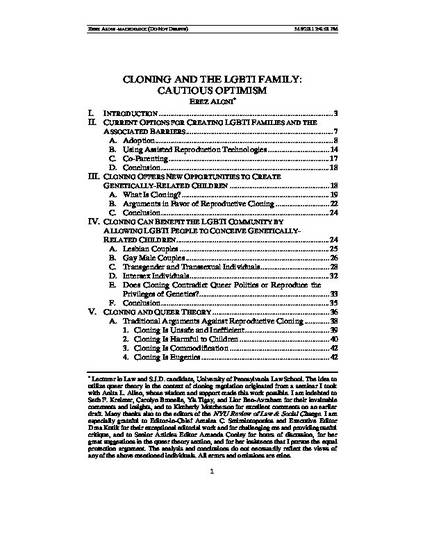
- Cloning,
- LGBT,
- LGBTI family,
- Gay family,
- Reproductive technology
While fertile, opposite-sex couples can have children who carry a mix of their genes without involving third parties in the reproductive process, this option is not available to the majority of the LGBTI community. If this were simply a biological fact, it would not raise any equal protection or other constitutional issues. However, emerging technologies in the field of reproductive cloning may offer the LGBTI community the chance to have genetically related children - possibly even with a mix of both partners’ genes. As such, bans on federally funding research that would help to refine and ensure the safety and efficacy of these procedures unconstitutionally denies LGBTI couples right to have children that is not similarly denied to opposite-sex couples who enjoy the fruits of research and technology that allow them to conceive without the use of a third party’s organs. Compounding and exacerbating this inequality is the fact that much of the opposition to cloning stems from inaccurate, heterosexist - and, at times, even explicitly homophobic - claims. This article challenges the popular arguments against cloning, suggesting that they are largely fallacious and, in many cases, outright discriminatory. It suggests that reproductive cloning could be incredibly useful for the LGBTI community, and that relegating research on these procedures to the private sphere significantly harms this class. At the same time, cloning should not be treated as the key to LGBTI equality.
